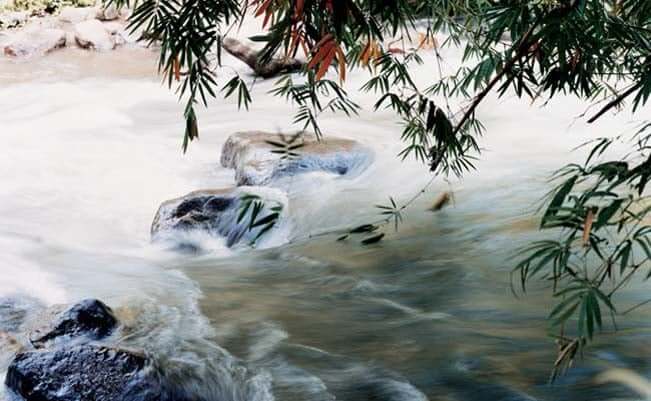Let Change Happen

© COMO Shambhala Estate Spa, Indonesia
Stress – Something we create ourselves?
Stress is one of the buzzwords of the 21st century. According to the World Health Organization (WHO) it is the greatest health challenge of this century.
In fact, stress is a very personal experience and therefore a quite subjective matter. What is perceived as stressful for one person may have little effects or even be pleasurable for others. A highly recognized expert in the field, Hans Selye, M.D., defined the term “stress” as it is used nowadays in 1936 as “the non-specific response of the body to any demand for CHANGE”.
Let Change Happen
So what does actually happen to us, when we are “stressed”? During a stressful situation the brain releases stress hormones that trigger certain reactions to provide your body with extra energy: your blood-sugar rises, your heartbeat speeds up and blood pressure increases. The muscles tense for action and your blood channels to the extremities. All this was carefully designed by nature to secure a fast getaway in threatening moments.
Looking back at Mr. Selye’s definition, the keyword here is CHANGE. The very essence of life is about change. We often long for change, but what if it actually knocks on our door? Stress is when we freeze; holding on to everything we have and know is safe. Change may ask us to let go of something that we perceive as safe and holds open possibilities for something new.
We have to embrace this freedom and let go. And if we dare to cross the threshold, abundance, beauty, and happiness are waiting for us. However, we are not always ready to embrace life in this way and the body resorts to sending out the “stress” message, which is essentially saying: I am under attack, I am threatened!
All of us react to stress differently. Physically it may cause digestive disorders, headaches, cold or sweaty hands, colds or infections, heartburn, nausea, diarrhea, depression, insomnia, difficulty concentrating, anxiety and many more. Emotionally we may lose the capacity to feel “big feelings” and be in the moment, instead we have a tendency to get upset or worry. Intellectually we may find it difficult to learn new things and develop new perspectives. And spiritually we may feel disconnected to the beauty of life.
Stay In The Now
How do we find a way back to being at ease with ourselves, to respond to life from a place of enthusiasm and creativity? A certain level of stress may be even beneficial, as it can increase our motivation to accomplish more. The challenge is to make the stress in our life work for us instead of against us. We need to find our balance so that we are able to embrace the new freedom of change!
The probably most important thing in dealing with stress is to stop past conditioning and stay in the NOW – keep your focus:
- Learn more about yourself and your body to detect early signs of stress and to keep it under control.
- Physical focus: go out and do physical activity to release the pressure (e.g. Yoga or running).
- Psychological focus: get counseling referring to past fears, how you triggered them and how to create an awareness to stop them. Talk about your concerns and worries with someone you trust. Don’t swallow your feelings.
- Mental focus: guided concentration and meditation exercises, lectures and material about health and wellbeing. Keep your joy in life. Go out and have fun and forget about the stresses of your life for some time. And when you return to them, they even might go away.
- This is probably the most important point: Take care of yourself and balance your life! Get enough rest, your personal time out and eat well. Your body deserves it. A Healing Retreat is a great opportunity to learn how to make wise choices when faced with change. It takes one out of one’s usual “stressful” environment into a place where it is all about connecting with one’s self. Step by step we become aware of the choices we have, how we can respond to life’s circumstances in such a way that we experience freedom and ease.


